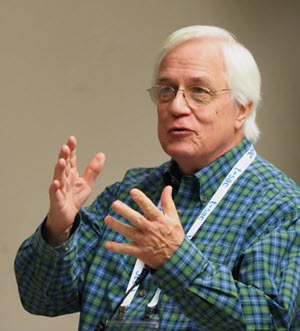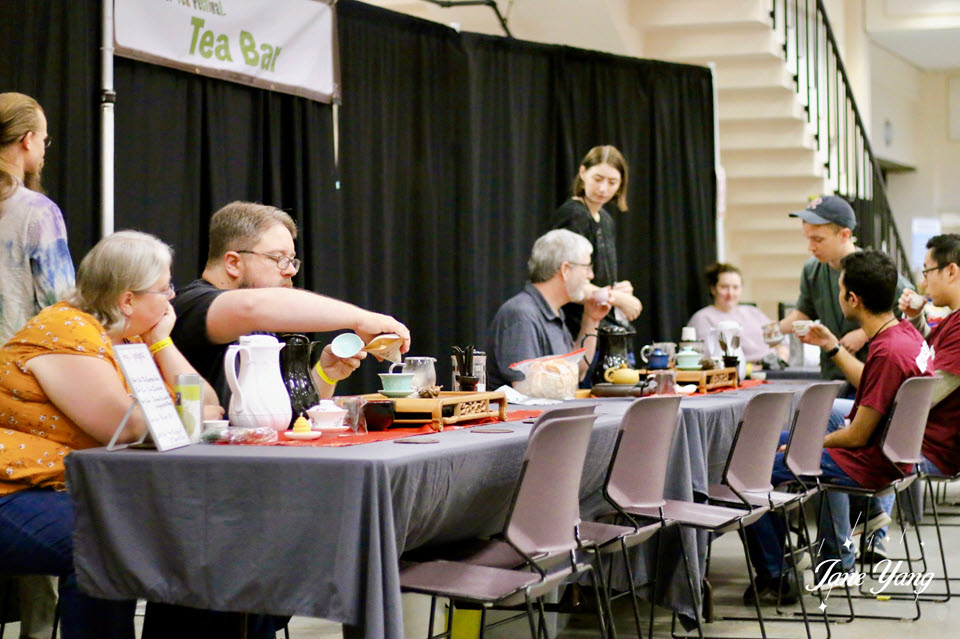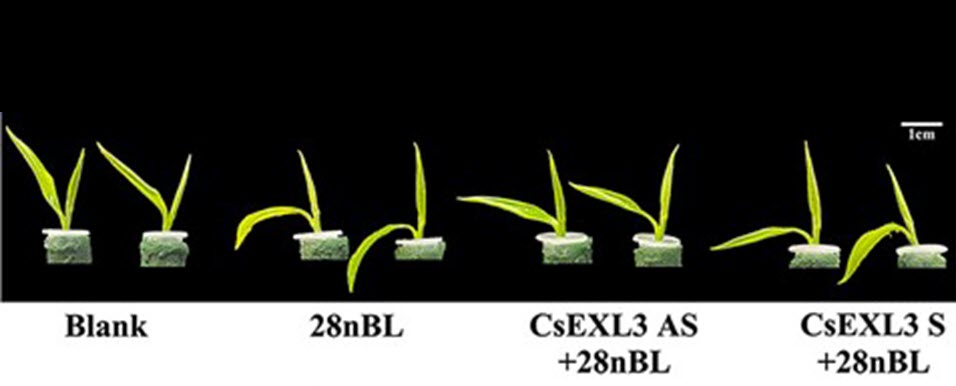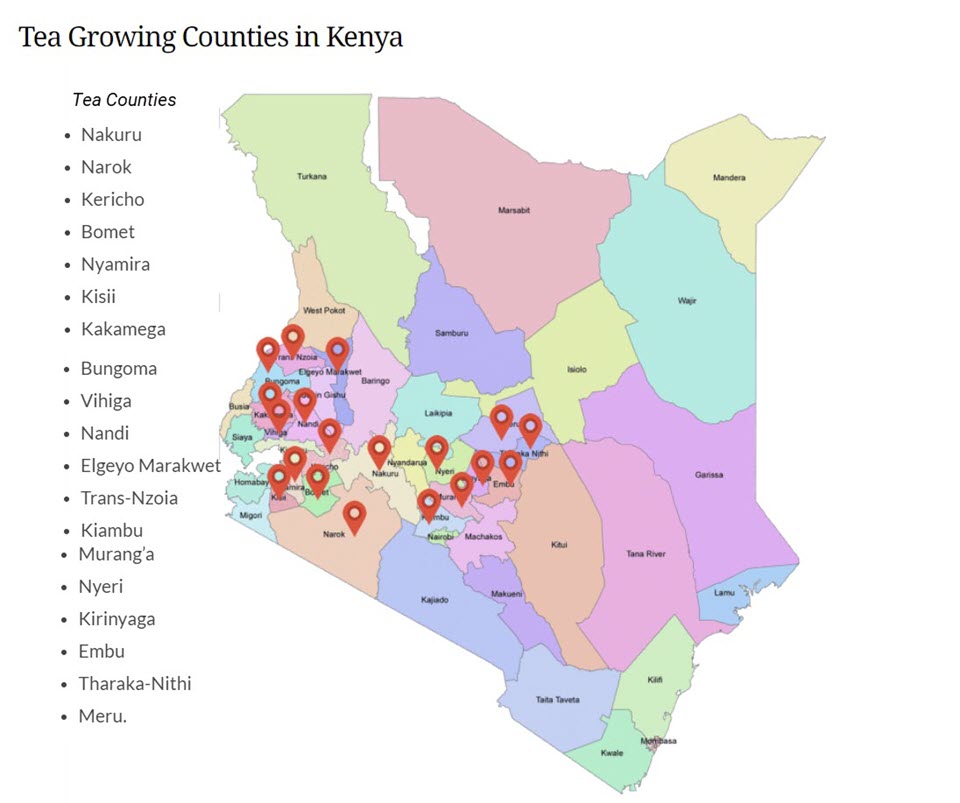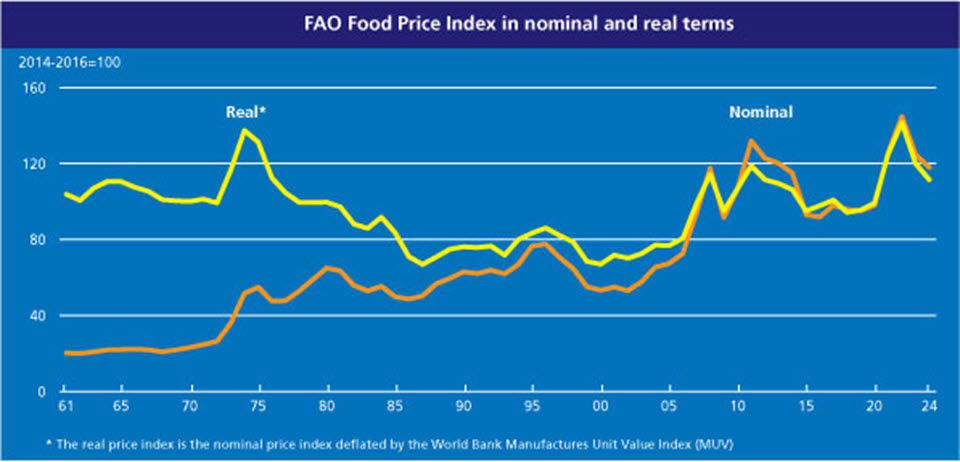Episode 186
Tea News for the week ending Sept. 20, 2024
Powered by RedCircle
India Tea News | Week of 13 September 2024

Kenya’s Annual Tea Bonus Brings Strife
By Dan Bolton
Disappointing bonus payments angered tea workers at several Kenya Tea Development Agency (KTDA) factories and led to violent and, in one instance, deadly protests. Protesting smallholders questioned the accounting and fairness of apportioned funds.
The Nation reports approximately 612,000 small-scale growers qualified for the estimated final bonus for sales through June.
Kenya Tea News reported that Principal Secretary of Agriculture Dr. Paul Rono has directed the Tea Board of Kenya (TBK) to audit all KTDA financial commitments and operations and all its assets.
KTDA National Chairman Enos Njeru reassured smallholder tea farmers that the bonus figures announced by factory directors adhered to the established accounting standards.
Njeru said figures released by the factory companies are prepared in compliance with International Accounting Standards (IAS) and International Financial Reporting Standards (IFRS) as governed by the Institute of Certified Public Accountants (ICPK).
“KTDA Management Service is an ISO-certified company and is bound to comply with these standards for the proper running of factory companies,” Njeru said in a statement.
At the end of the 2023/24 fiscal year, President William Ruto estimated that KTDA earnings had increased by KSh30 billion and predicted that farmers would earn a record average bonus of KSh 70 shillings. The average is far less.
Tea exports set a record $1.4 billion (KSh181 billion) in sales in 2023, a $950 million increase from an outstanding harvest totaling 523 million kilos. A further KSh16.4 billion was sold locally for a total of Ksh197 billion about $1.525 billion USD).
However, the improvement in farmers’ payments this year is mainly due to the devaluation of the shilling, as dollar prices remain flat.
Last October, tea farmers received a Ksh 44 billion bonus in addition to KSh 24 billion in monthly payments totaling Ksh 67.67 billion (about $525 million USD). KTDA manages 69 factories, of which 17 operate as satellite units. KTDA growers harvested 1.13 billion kilos of green leaf and produced 267 million kilos of made tea.
The large export sales total raised expectations, but the annual bonus, calculated for each of the 56 KTDA-owned factories, is based on average annual sales of tea, with fewer monthly payments to growers. The cost of operations and factory overhead is then subtracted, and the remaining sum is distributed based on how many kilos each grower contributed to the total. About 45 million kilos of tea (from roughly 225 million kilos of green leaf) remain unsold.
In Bomet County, a 28-year-old protestor was killed and two others seriously injured when anti-riot police fired on looters who breached the Mogogosiek factory gate In Kirinyaga County, hundreds of tea farmers took to the streets rejecting a KSh 46 per kilo bonus.
Growers carried signs reading “Reject the peanuts” and “Kwani ni mayai,” which in Kiswahili translates as “Is it a payment for eggs?”
At the Miciimikuru factory in Meru County, protesting workers angrily set fire to 12 acres of factory-owned fields after learning their annual tea bonus was only 35 shillings. Factory board chair Stephen Kathiri told Business Daily, “Since last year, we have not sold orthodox tea and are stuck with 786,000 kilograms worth KSh 353 million at the warehouse. This negatively affected our cash flow, leading to lower pay.”
In contrast, workers at the Ngere factory earned 62, those at Nduti 60.9, Imenti 60.3, and Gathuthi 57 shillings (an increase of 13 shillings compared to last year). Workers at the Githongo factory were happy with 56 shillings; at Githambo, they were angry despite a 42 shillings per kilo bonus. This is because the newly elected board estimated the bonus would be 60 shillings when running for election last month, only to disappoint.
At the Gitugi Tea Factory, the board approved the KSh 53 per kilo bonus payment, a KSh 4 reduction from what farmers were paid last year.
The bonuses at factories west of the Great Rift Valley were meager, with workers at eight factories earning less than 25 shillings. Nyamache workers received 20 shillings, as did those at Mokama, Mwamu, Mogogo, Kapset, and Rorok. The average bonus south of the Rift was KSh 23. Bonus payments at Nyeri’s five major KTDA factories ranged from KSh 45.5 to 57.3 shillings per kilo.
“The west of the Rift has been affected more by the building up of stocks due to the minimum price, and its factories are the ones paying the lowest bonus,” writes Alfred Njagi, former Managing Director of KTDA Management Services Ltd.
“There are a few exceptions like Momul, which has a high-quality culture, so it’s pay-is-the-best in the West and even beating some of the factories in the East,” said Njagi.
Nyankoba’s 19,244 growers will be paid a KSh40 bonus per kg of green tea sold by the factory, an increase of Sh5 from the Sh35 they earned from last year’s crop but nowhere near the hundreds of shillings per kilo in final bonuses that were paid to growers in past years.
SPOTLIGHT
Samovar Tea at Sunset
Fifty years ago, three industrious Turkish brothers in Havza near Türkiye’s tea-growing region along the Black Sea, fabricated a modern chromium steel version of the traditional samovar. These storied vessels, fired by wood or coal, brew tea while keeping large volumes of hot water on tap.
The Sözen brothers were skilled copper, bronze, aluminum, and steel metalworkers. Their compact, easily disassembled design for Sözenler Semavers (the Turkish word for tea-urn) is now the nation’s most popular brand.
Listen to their story
Powered by RedCircle
Share this post so that others can benefit
Kenya’s Annual Tea Bonus Brings Strife |Sri Lanka Reinstates Minimum Daily Wage Challenged in High Court | Lipton CEO Nathalie Roos Resigns | Episode 186 | 20 July 2024
Sign up to receive Tea Biz weekly in your inbox.



